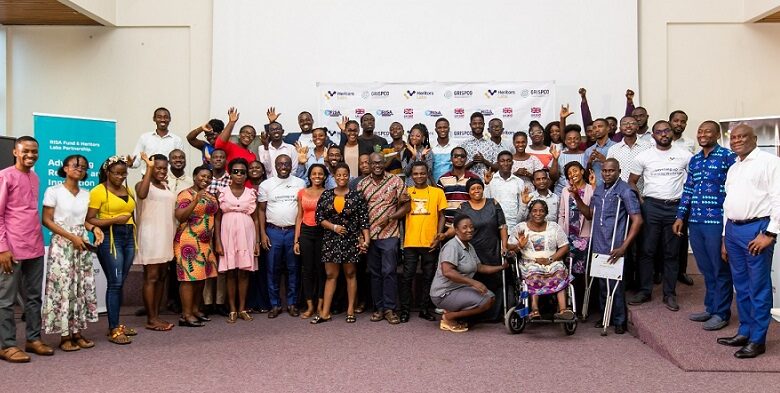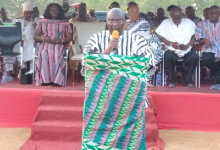
Heritors Labs Limited, a Web 3.0 company and a hub for research and innovation services, hosted a two-day training workshop to build entrepreneurship capacity and increase the participation of women, young people, and Persons With Disabilities (PWDs) in the research and innovation commercialisation value chain.
The event, dubbed “Levelling up training workshop for research and innovation commercialisation and entrepreneurship”, was held last week at the Ghana-India Kofi Annan Centre of Excellence in ICT (AITI-KACE) in Accra.
Funded and supported by The Research and Innovation Systems for Africa (RISA) fund, FCDO and UKAID, the leveling up training workshop is a part of Heritors Lab’s continued effort to drive the development of thriving value chains in the Science, Technology, Innovation and Research (STIR) ecosystem as well as advance the commercialisation of innovation and research outcomes in Ghana.
Participants were introduced to the available support programmes within the R&I Ecosystem and educated on the principles and practice of commercialising research and innovation.
The objective was to successfully equip participants with the skills, knowledge, and platform to commercialise their innovative ideas and prototypes.
In addition, participants’ confidence in pursuing and developing valuable networks was bolstered, and they were encouraged to form meaningful partnerships.
Other topics treated at the training workshop included financial management, funding support, research sales and marketing strategies, team building, and company structure and formation.
DerrydeanDadzie, the CEO of Heritors Labs, Ltd in his opening address reiterated that “individuals with disabilities and women were often overlooked and underrepresented in the STIR value chain. Notwithstanding, they can play critical roles using their other physical and intellectual abilities to impact the ecosystem significantly.”
MrDadzie explained that people with disabilities might be unable to work as lab technicians or use delicate scientific tools and equipment such as microscopes or simple ones like beakers.
He however, stated that they may be capable of achieving success in fields like project management, research communications, software development, and technology advisory within the research and innovation ecosystem.
The levelling up training initiative aimed to build the innovation capacity of people with other abilities and women on how to commercialise their research and innovation ideas, thus empowering them to create their businesses and achieve financial independence towards eradicating poverty.’
With the majority of participants having disabilities, the workshop provided individualised learning experiences and mentoring opportunities through one-on-one sessions with facilitators.
A key highlight of the programme was when the participants were taken through a practical session on moving innovative ideas to market by renowned guest speaker, a Ghanaian inventor, Mr GM Adjabeng, who engaged them virtually from his North Carolina base in the United States of America.
An Alumnus of the University of Cape Coast, MrAdjaben is an inventor who is also the founder of Ecodyst Scientific, the innovative creators of the next generation of rotary evaporators used by top scientists and scientific laboratories around the globe.
“We are excited about the impact this program will have on the lives of its participants and anticipate new partnerships in addressing other pressing challenges to bring the social gaps in the research and innovation commercialisation value chain,” Mr.Dadzie said.
It would be recalled that in the year 2022, the Research and Innovation Systems for Africa (RISA) Fund, a multi-country project funded by the UK through the Foreign, Commonwealth and Development Office (FCDO) to support research and innovation systems strengthening in Africa, awarded Heritors Labs a grant to boost the commercialisation of research and innovation in Ghana through deepening access to research and innovation programmes and building a robust infrastructure for the communication, advocacy and marketing of research and innovation outcomes.
The grant has resulted in the design of programmes and activities to facilitate the inclusion of marginalised and excluded segments of our society, such as women and individuals with disabilities, in the research and innovation value chain.
BY TIMES REPORTER






